.49.39_PM.png)
Ruby Rose Collins's Fundraiser

Help an Independent Filmmaker Tell Their Story
Based on the life of Kathleen Collins
Project Title: All The Love I Could Handle
Project Type: Fiction Short Film
Project Status: Pre-Production
Overview & Context: Kathleen Collins was a revolutionary Black filmmaker and civil rights activist, posthumously credited as one of the first Black women in America to make a feature film. Today, she is widely recognized as a pioneer in cinema by the likes of Ava DuVernay, Julie Dash, The Academy, and The Library of Congress. However, her work went largely unnoticed in her lifetime before she unexpectedly died at forty-six.
This short film, written and directed by her granddaughter, tells the layered story of Kathleen Collins as not only an artist but as a complicated mother, humanizing her beyond the myth of an idyllic pioneer. This film unearths the universal tug of war between one's responsibilities to one's ambitions and to one's children. Inspired by Kathleen's personal diary and lifted from her daughter's memories, ALL THE LOVE I COULD HANDLE is a short film that chronicles a true slice of Kathleen's life.
LOGLINE
When a beloved family dog unexpectedly gives birth and abandons her litter, two headstrong children stop at nothing to get their distracted mother’s attention and keep the puppies alive. Inspired by true events.
THE STORY
1982. Upstate New York. The hottest summer on record. Filmmaker Kathleen Collins has decided to risk everything – her finances, relationships, and even her home – to do what no other Black woman had done before: make a feature film.
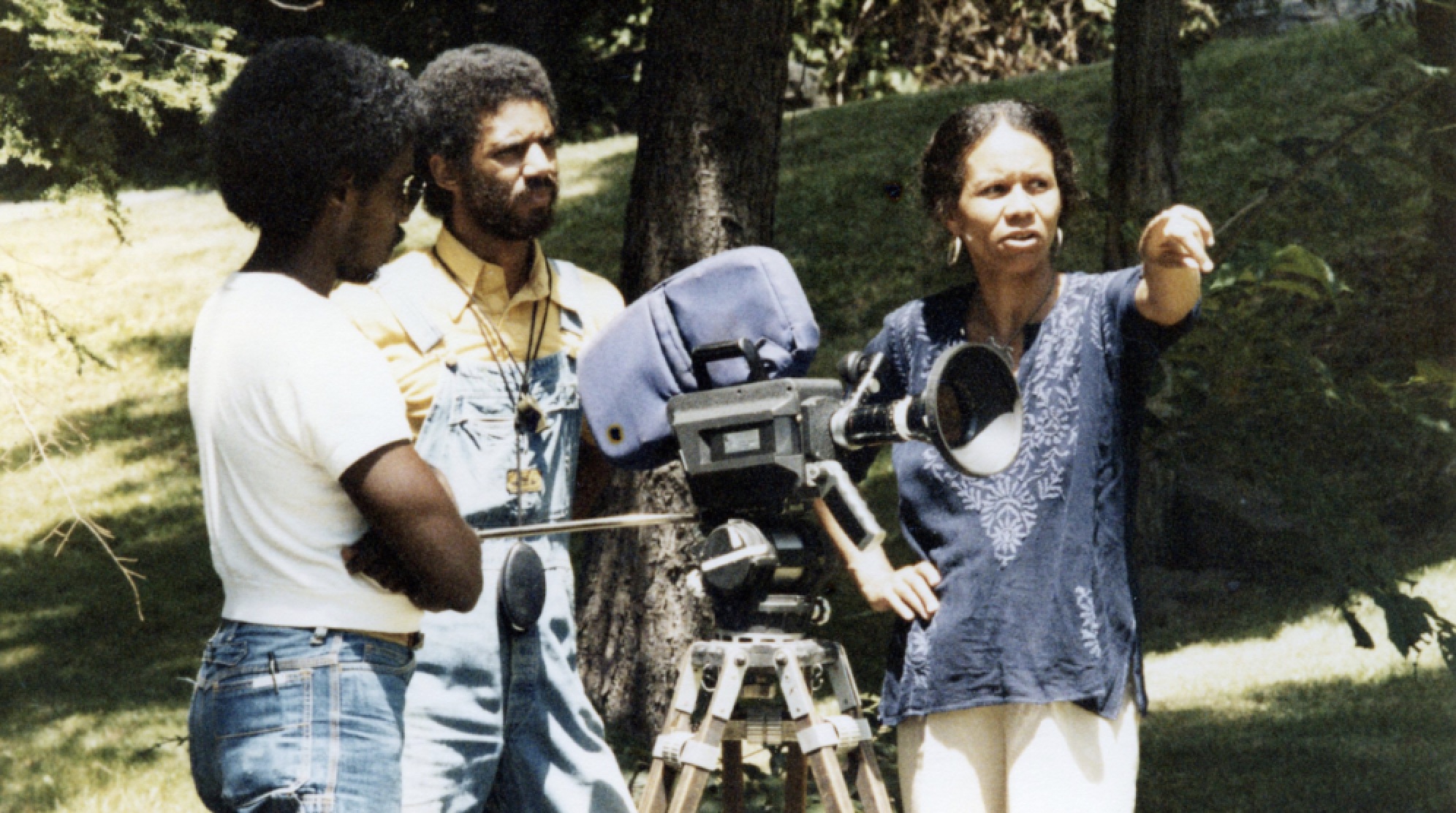
After a month of filming, and with only one weekend to edit, Kathleen barricades herself in her living room with her lively cinematographer, Ronald Grey, a Steenbeck and a dozen film canisters. Meanwhile, her children, Nina, 7, and Miwo, 5, discover that their beloved family dog, Ginger, has curled into the pantry... and is about to give birth. As Nina pines for her mother’s help, Kathleen stays focused in her artistic obsession, searching for the best shot to finish the film. Understanding that it'll be up to them, Nina and Miwo scramble to help Ginger deliver her puppies... and they do. The film follows the kids as they take imaginative measures to try and keep the puppies alive, while Kathleen fights to save her film.
THE CONTEXT
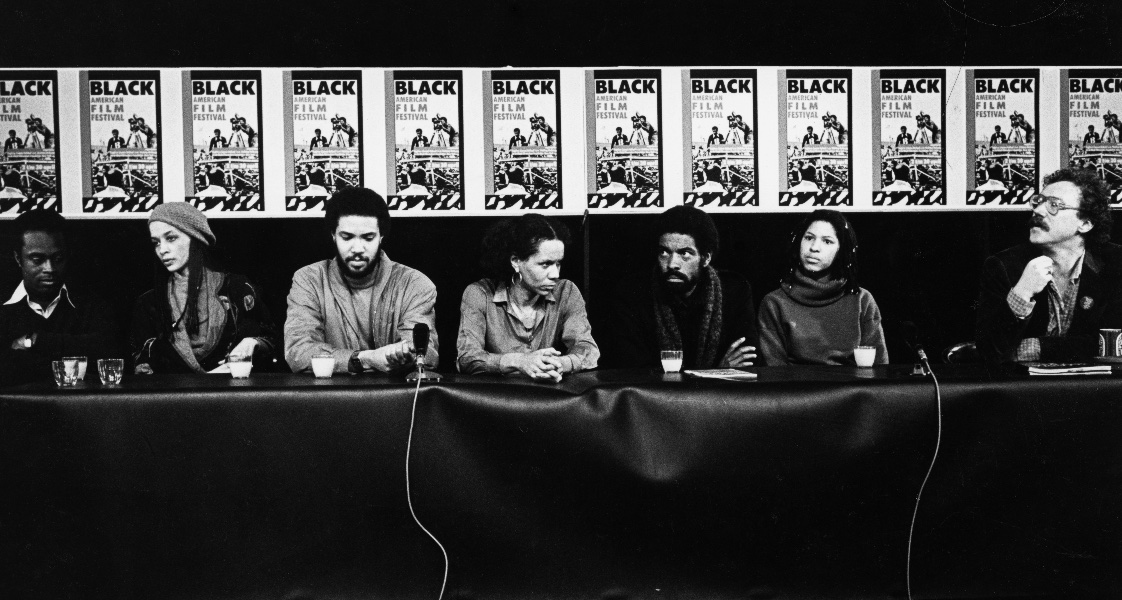
Kathleen's unwavering commitment to her craft carries more weight than simply that of an artist with a dream. Kathleen fervently believed that Black people deserved more complexity on screen, that Hollywood had too long permeated a mythology wherein Black people were either saints or sinners, and that humanity actually existed in the in-between. To deny a person the right to complication -- to the good, the bad, the ugly, and the beautiful -- is to deny them their right to live. In 1982, portraits of Black people were already few and far between, and the ones that did exist, relied heavily on liminal stereotypes. Kathleen's seminal film, LOSING GROUND, was the first portrait of a Black woman that allowed true normalcy. Gone were the expectations of Blaxploitation films, of Mammy or Jezebel stereotypes, and in was a complicated portrait of a middle-class Black woman simply pursuing a life of pleasure. Unfortunately, in Kathleen's lifetime, film distributors said they didn't "know any Black people like that" and that there was no market for her work. Soon after, she died unexpectedly at the young age of 46.
In 2015, more than thirty years later, Kathleen's daughter, Nina, restored her mother's work, finally giving it the audience it deserved. LOSING GROUND became a seminal work in the film canon, even formally added to the Library of Congress and honored by The Academy. Today, Kathleen is given the historic recognition she deserves for allowing generations of filmmakers to not only see a path toward their futures, but for Black women to see themselves on screen.
THE FILMMAKER & THE WHY

Growing up, I knew almost nothing about my grandmother. All I knew was that she died young. I watched my mother try to raise herself while she raised me, unable to fully break away from the pain of the loss of her mother. I knew that, in many ways, my mother would always be a child longing for her lost mother, that my life would inevitably be painted by that pain. As I got older, I started to witness myself in her shadow, behaving in the same patterns she did, and I wanted to interrogate why. I knew I needed to understand the many things that shaped my mother, and how her own maternal relationship sculpted who she was. I sought to learn everything I could, began sifting through decades of diaries, letters... and that's when I came across my mother's plain re-telling of this story: the day her beloved dog Ginger gave birth to a litter of puppies.
We've all heard a version of the saying "We spend our whole lives trying not to become our parents until we wake up one day and realize we are them." This film, centered on Kathleen's story, with my mother and my gaze as lenses, fundamentally asks, and begins to answer, how we can stop cycles of generational trauma and heal from our inherited pasts.
THE CREATIVE APPROACH
This is a film about the two waring sides to a life, the push and pull between our conflicting wants and needs. The visual and auditory language roots itself duality and the importance of perspective. For the majority of the film, the camera follows Nina intimately, in tight close-up shots, almost entirely handheld, immersing the viewer in Nina’s view of not only the world, but of her mother. Tight, fast-paced, vérité sequences — that feel like they never end — will ground the viewer in this reality. The viewer is never an outside observer, but an active participant in this world. In the final act of the film, however, the perspective shifts from Nina’s to Kathleen’s. In one instant, Kathleen realizes the gravity of her blind spots as a mother, and for the first time, the camera pivots to her interiority, allowing the viewer to empathize with the fullness of her humanity.
KATHLEEN'S WORLD
Passionate. Tense. Claustrophobic. Urgent. Artificial. Sexy. Angular. She's made the living room into her alchemist's lab.
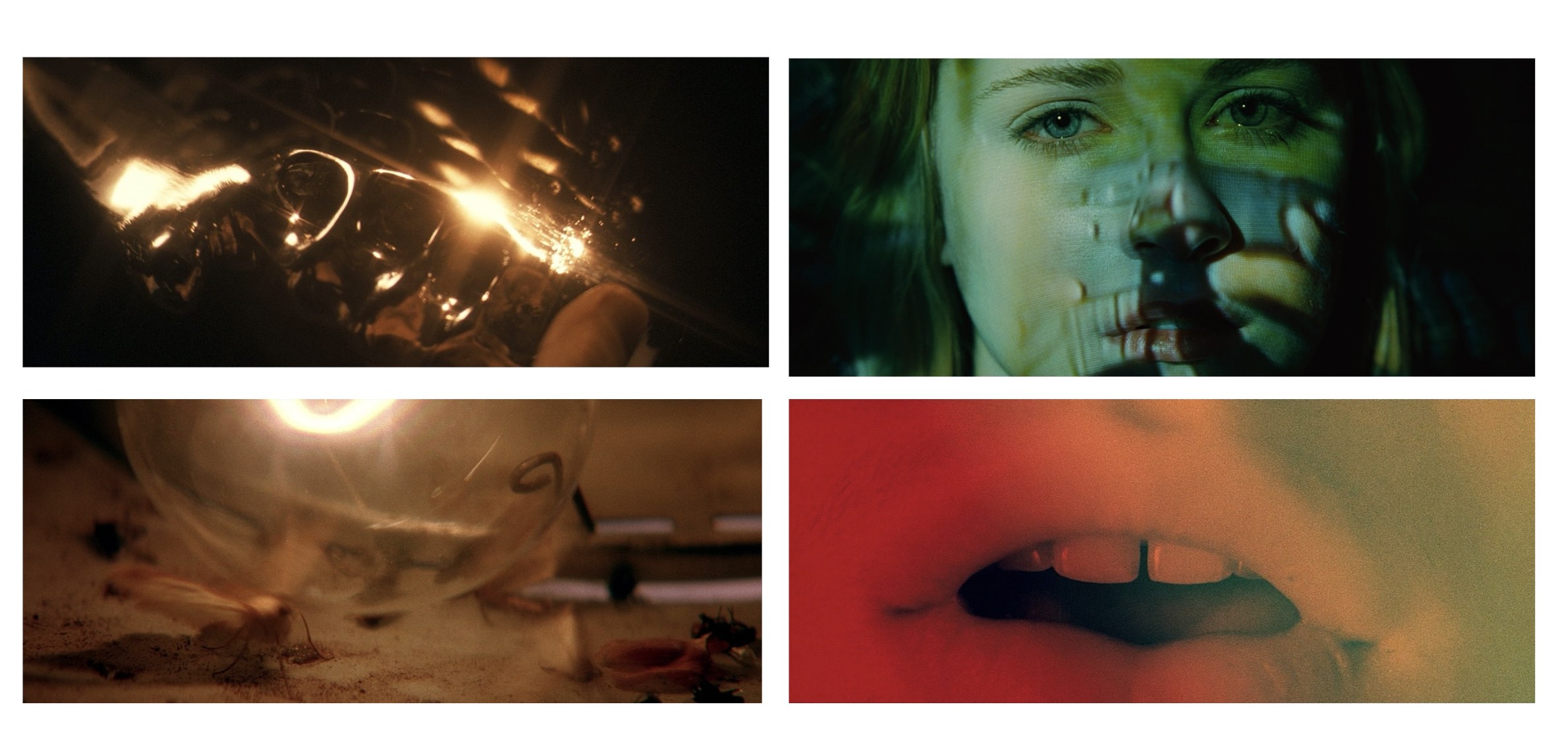 NINA & MIWO'S WORLD
NINA & MIWO'S WORLD
Hot. Sticky. Nostalgic. Dreamy. Romantic. Slow. Natural. Open. Free. Only interrupted by the chaos of the adult world.
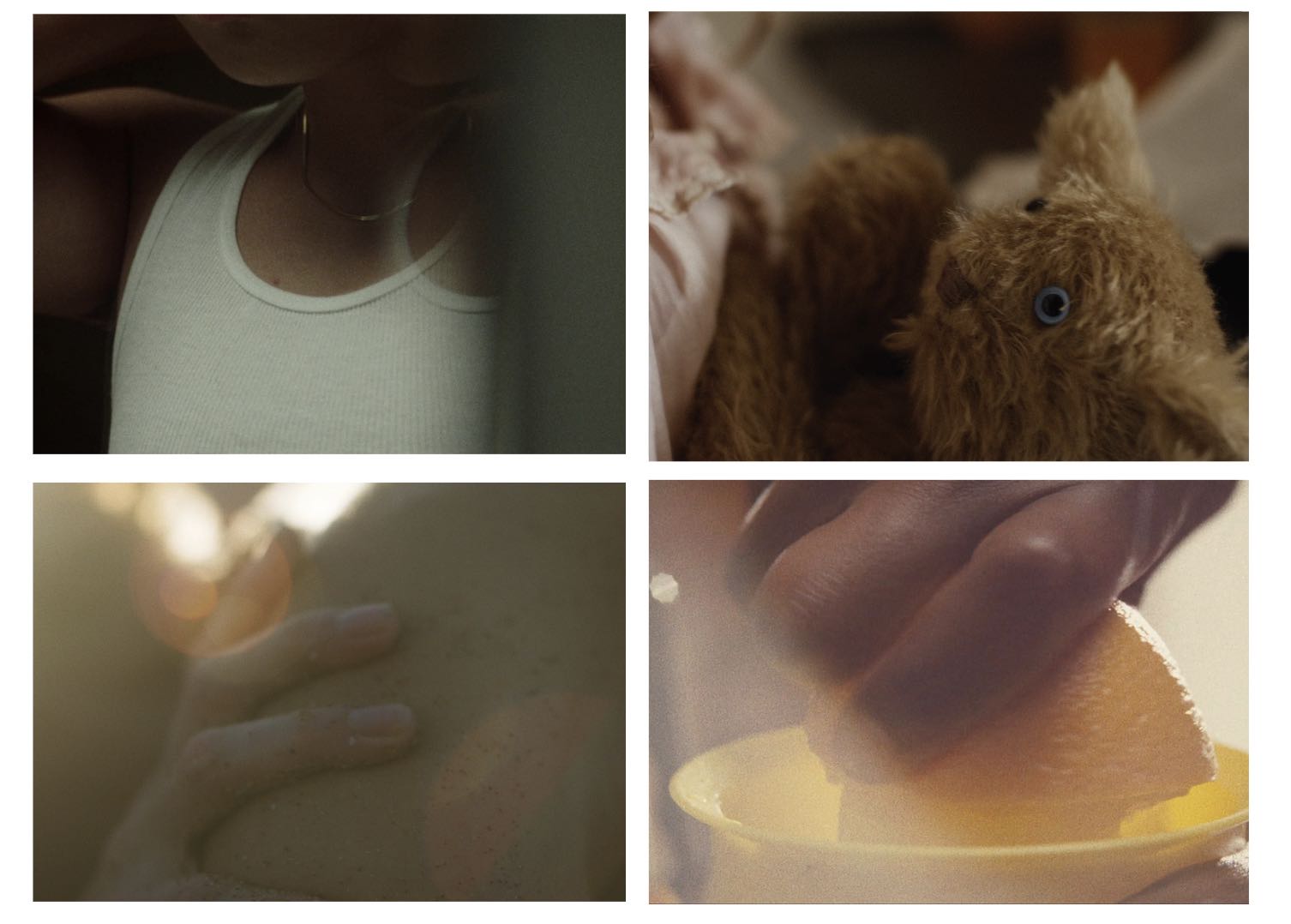
WHAT WE NEED
Our team has been lucky enough to secure funds for a significant portion of production: cast and crew wages. Still, making a low-budget film that features two young children, a dog giving birth, real life puppies, actual swimming in a lake... and set in 1970s New York is not an easy task! To make this film possible, we are looking to secure funding to:
- Create the 1970s world of ALL THE LOVE I COULD HANDLE through Production Design. This includes 1970s film equipment, realistic puppies, birthing SPFX and costumes to match the era.
- Adhere to SAG guidelines and ensure the safety and well-being of our young cast. Working with a 9-year-old and a 6-year-old means we will need to ensure we have a Studio Teacher on set, as well as film over five days as opposed to three.
- Purchase Production Insurance to secure shooting locations and rent equipment.
- Feed our crew Meals & Catering over five days.
- Secure ideal locations, including a Lakefront dock and a 1970s-era home.
...and more! See "wishlist" for more details on how your generous contribution will be used.
THE ARCHIVE
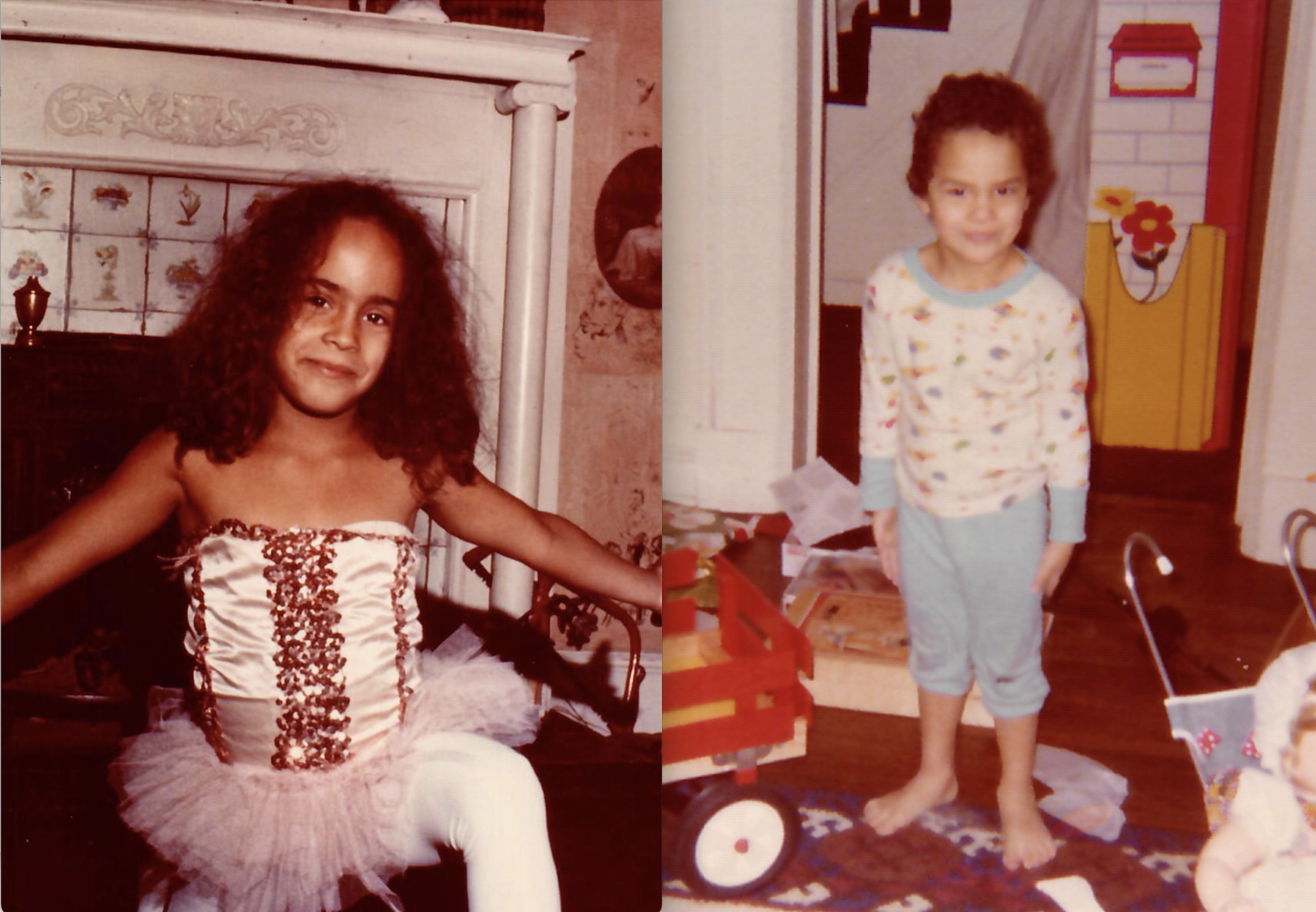
LOST AND FOUND; Richard Brody, 2015, The New York Times
https://www.newyorker.com/magazine/2015/02/09/lost...
KATHLEEN COLLINS'S OTHERWORLDLY WOMEN, 2020, The New Yorker
https://www.newyorker.com/magazine/2020/04/27/kath...
HOW KATHLEEN COLLINS' DAUGHTER KEPT HER LATE MOTHER'S CAREER ALIVE, Nina Lorez Collins, 2016, Vogue
https://www.vogue.com/article/kathleen-collins-fil...
THANK YOU!
Meet the Filmmakers
Ruby Rose Collins (Writer-Director)
Ruby Rose is a filmmaker passionate about character driven stories that merge nonfiction with genre-bending spectacle to showcase the humanity of Black stories.. As a filmmaker, she has produced documentaries that have aired on ABC, A&E, and Hulu. Most recently, she produced the Nipsey Hussle docu-series with Lebron James’ Springhill Entertainment and Jay Z’s RocNation. Ruby has worked on a wide slate of short films that have premiered at festivals globally, including Sarajevo Film Festival, Outfest, Rooftop Films, NoBudge, and Teen Vogue. In addition to working as a Showrunner’s Assistant to veteran storyteller Mara Brock Akil, she has worked in development at HBO and Universal Studios, with short stints at production companies Big Beach and QC Entertainment.
Damanuel Richardson (Producer)
DaManuel is a writer, programmer, and creative producer alongside his award-winning partners at Hello Benjamin Films. His sub-rural upbringing and extensive family tree inspire his love for stories that explore loss, identity, and healing generational trauma. Leaving the cow fields of Georgia behind, DaManuel journeyed to Los Angeles, where he attained his MFA from CalArts. He later programmed shorts for the Sundance Film Festival and recently worked as a showrunner's assistant at WBTV. DaManuel now works with the Oscar-winning team behind Everything Everywhere All At Once, producer Jonathan Wang, and directing duo Daniels. Despite traveling far from his southern roots, DaManuel is happy to report his green thumb is still intact, thanks to years of urban farming in LA.
Solomon Turner (Producer)
Solomon Turner is a filmmaker, cinematographer, producer and co-founder of Hello Benjamin Films, an award winning film production company. He recently participated in the 2020 Visions du Réel Industry Rough Cut Lab with a feature in post production. Solomon received his BA in Cinema Studies from Oberlin College and an MFA in Film/Video from the California Institute of the Arts. His work has been featured on IndieWire and has screened at the REDCAT Theatre and Poetic Research Bureau (Los Angeles), Art Basel Miami, and Vienna International Film Festival. He was one of 20 documentary producers invited to the 2019 Sundance Creative Producing Summit. In 2019, Solomon was named a Sundance Documentary Fund Grantee
Maggie Corona-Goldstein (Producer)
Maggie Corona-Goldstein is a Mexican-American producer and co-founder of Hello Benjamin Films. She was recently awarded the 2021 Sundance Institute Project Advancement Grant for a feature in production. Maggie is a Sundance Documentary Fund Grantee, and was named a Documentary Fellow for the 2021 Sundance Institute x Women In Film Financing Intensive. In 2020, she participated in the Visions du Réel Industry Rough Cut Lab with a feature in post production. She has also served as a Program Coordinator in non-profit arts education for youth throughout Los Angeles. Maggie holds a B.A. in Theater and Creative Writing from the University of Oregon, and an M.F.A. in Acting from the California Institute of the Arts.
Mboni Maumba (Production Designer)
Mboni Maumba is a Tanzanian-Chinese filmmaker based in Los Angeles. As a designer, she is a two-time Student Oscars winner for The Chef’19 and Shedding Angels’22. Her first feature film, The Listener’22, directed by Steve Buscemi and starring Tessa Thompson premiered at The Venice Film Festival, Giornate Degli Autori section.
Mboni loves story and production design fiercely, perhaps more than anything in the world. She is steered by a passion to mould images into speaking more than words ever could, with a strong belief that the truth is often what is not spoken but exhibited subtly.
Mboni’s viewpoint is strongly influenced by a juxtaposition of the cultures and lifestyles she adapted to while moving from country to country since childhood, no more than a couple of years in every place. A key moment that shaped her storytelling was at an experimental hub in New Mexico(The UWC Movement that has been nominated for The 2022 Nobel Peace Prize) that selected 200 teenage representatives from over 90 countries to live and learn from one another’s culture for two years, away from the rest of the world. It is in this place that she witnessed a Palestinian and an Israeli progress from sharing a meal table to a genuine friendship, and stayed up countless nights debating with her roommates from Syrian and North Korea about the refugee crisis. This inspired Mboni to tell stories that challenge the modus operandi of cultures, through main characters who are fluid enough to blend in anywhere yet truly belong nowhere.
The film she designed, Arabian Alien explores homosexuality and repercussions in Saudi Arabia and premiered at Sundance 2020, won best narrative at the 2020 Atlanta Film Festival. In The Chef, a retiring chef and a humanoid apprentice bond through traditional Chinese cooking, and was a winner in the 2019 Student Academy awards.
Mboni’s native languages are Swahili and Mandarin. She is fluent in English, and conversational in French.
Gemma Doll Grossman (Cinematographer)
Gemma Doll-Grossman is a LA-based cinematographer born and raised in San Francisco. She has lensed films that recently premiered at Venice Film Festival (Isabella Torre's Luna Piena) and SXSW (Chaconne Martin-Berkowicz's Scotty’s Vag).
After earning degrees in Biology and Film Studies from Wesleyan University, Gemma worked as a soccer coach to save money to book a one-way ticket to Rome to reconnect with her family. She ended up living in Italy for four years and working as a set electric, most notably alongside directors Jonas Carpignano (Mediterranea, A Ciambra and A Chiara), Benh Zeitlin (Wendy) and Joe Talbot (American Paradise). Upon her return to California, Gemma graduated with an MFA in Cinematography from AFI Conservatory in 2019. She has since been a Project Involve 2022 fellow, a two-time Panavision grant recipient, and a cinematographer at the 2023 Sundance Directors' Lab.
Gemma focuses on narrative feature filmmaking. Her features are currently in post-production: Francisco Ordoñez's erotic crime thriller The Low End Theory, Seabold Kreb's psychological drama Bury Me When I'm Dead and Matt Hardy's Dogme 95-inspired Bare. Gemma's goal is to make audiences experience visceral, somatic sensations to story and image. Committed to capturing often untold perspectives and utilizing experimental techniques, Gemma loves to explore sexuality, moral ambiguity, and the magical in the mundane.